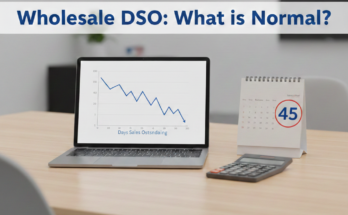If you think about the marketing campaigns that you remember you’ll probably come up with quite an extensive list! From P&G’s Thank You Mom campaign to British Airway’s Love Letter to Britain – the reason why these types of campaigns stay high in mind is because quality marketing campaigns make a company memorable. They clearly define their audience and know how to tap into emotion. Additionally, marketing campaigns give a brand or business an identity and a personality. With effective campaign management, marketing campaigns can do the same for your business, no matter how big or small it is. You can also take an advantage of Instagram followers when you built up strong engagement. To find out more on creating effective marketing campaigns that work, and how to use campaign management, read on.
Understanding Marketing Campaigns
Before we move on, let’s take a moment to summarize what a marketing campaign is. A marketing campaign is a well-organized and strategized campaign of marketing activity designed to promote a business or promote a specific business’ goal. They can be used to grow awareness around a product or a service, they can also be used for events – and other activities. A marketing campaign is quite large-reaching and usually involves a selection of different media channels. Those channels could be social media, TV, radio, billboards, amongst others. You can also promote your campaigns on social media, for example, IG stories is the best for social media promotion, get views and reach your target audience.
A marketing campaign isn’t necessarily related to all of a business’ marketing activity. Typically, it involves a few channels focussing on one specific, for example, it could be a car company focussing on a new launch. Or a property company launching a new development.
The Difference Between a Marketing Campaign and an Advertising Campaign
People often get confused between advertising and marketing. Advertising comes under marketing’s umbrella. Advertising and marketing are both ways to raise awareness about a brand, business, products, or services but there’s a difference. Advertising is paid for (so targeted print or online ads, TV ads, radio ads, billboard ads, flyers, leaflets etc. Marketing is usually activity to raise awareness that isn’t “bought”. So, it could be through writing a blog post, managing social media, creating an event to generate interest around a product or service. There is a difference.
Marketing Campaign Management
Within every marketing campaign that your business runs, there are lots of components necessary for effective marketing campaign management. Let’s go through each:
Identifying Your Goals
These are necessary to identify the end goal of your campaign and how you’re going to measure that goal. For example, if you are using content creation, you’ll measure how well it performed by tracking its traffic for each post. Each post should have a goal attached to it, for example, reaching 1,000 views a week or adding 10 new people to the sign-up page. You can measure your metrics using various tools available online, one very good tool that we recommend is Google Analytics, you can access it here:
Identify Your Marketing Channels
This is a question of considering where you’re going to publish your content and message? Let’s look at social media – which channels will work best for your marketing campaign? Is growing one social media network more important to you than another? In which case, this will be one of your marketing channels. As one of the best marketing channels supported by Meta, aka Facebook, is Instagram. Managing an Instagram business account will provide phenomenal recognition. If you want find out more about Instagram business account read here. Remember, you will need to adjust your marketing campaign to work with each different social media network channel for really effective campaign management. Here you have a guideline to choose which social media platform is best for your business.
Budget
For campaign management, you need to set a budget. Some don’t need massive budgets, for example, if you’re running your own marketing campaign for your small business, you might only have a very small budget. However, bigger businesses might use a freelancer or an agency which costs money. No matter how big or small your business, set a budget and keep an eye on your costs.
Your Content Format
What type of content are you going to formulate to create your marketing campaign? We’re talking about the written word, video, images, an e-book, a blog or even a press release. Think of these as the components of effective campaign management.
Your Team
Who will be a part of your marketing campaign team? If you have a team, you’ll need to assign tasks for campaign management. Of course, you should assign the tasks to different team members’ strengths. For example, copywriting to your best copywriter, website development to your website developer etc. It’s not rocket science, but it makes sense!
Your Design
Every marketing campaign needs good design, and it should be instantly recognizable across all channels. Make sure your design is professional looking and is inline with your campaign’s purpose. Always include your brand livery and your logo so it’s highly visible and your audience can automatically see who’s campaign it is.
Successful Campaign Management
Without doubt, creating a marketing campaign is a tall order but actually, while there are many steps, it’s relatively straightforward. You may get the steps that lead you success in social media as indicated here. The planning stage is massively important, and you want to get all the ingredients perfectly spot on because then executing your campaign will be much easier and you’ll be more successful as a result.
Before creating what you want your audience to see, you’ve got to think about what you want them to do once they’ve viewed it. Here are some questions to ask yourself when it comes to create a successful marketing campaign.
- What’s your goal and purpose? So ask yourself why you’re running this marketing campaign and what do you want it to achieve? Do you want it to promote a new product? Promote a new service? Grow brand awareness? Gather customer feedback? Create more revenue? Boost your engagement or perhaps to promote an event? This is a list of ideas for your goals. Once you’ve identified your goal, write it down. If there are any sub-goals, write them down too.
- How will you measure your campaign? Will you measure your orders, your email opening? Your new followers or likes? Every marketing campaign needs clear metrics, and to know whether or not your campaign management has been successful you need to measure each. It could relate to social mentions, upsells, email sign-up, newsletter sign-up, blog views, blog comments, or even IG likes sharing your content – anything that’s measurable should be measured and is part of effective campaign management!
- Who’s your target audience? If you don’t know who your marketing campaign is aimed at then you won’t make it a success! Are you trying to reach new customers or gain feedback from your existing audience? Are you introducing your brand as a new idea to a new audience or marketing it as a recognizable brand to your current audience? Additionally, your marketing campaign will depend on whether your audience is in one of the following stages: Awareness, Consideration or Decision. You might find that your campaign encompasses all, so you bring awareness to new customers, but you create decision-making for your current audience. To determine your audience, think about what they’re interested in, what TV shows do they watch? What newspapers do they read? What are their hobbies? Also ask yourself where they hang out on social media? What content do they reply to and what resonates with them?
Think about how your product or service will solve their problems! So, a new pair of jeans to replace their old, tired jeans or a new style of athletic wear that helps with performance… The bottom line here is getting acquainted with your audience and use data to back up your research.
- Next, you need a concept. Within that you need a mission, to document your vision and your visual identity. Depending on the size of your business, you might use a marketing team in-house, or you might farm out the work to a freelancer or an agency.
- Then you’ll need to decide on how to distribute your marketing campaign. This should include what your audience will see and when. You’ll need to choose the type of channels you want to use, and this will depend on your audience, your budget and where you get the best brand engagement – or where you want to increase your brand engagement. To determine this, run an analysis of your current channels and decide which works best for you, in terms of budget and engagement but also and probably most important of all, discover the channels where your customers are most likely to be. Remember to use your Insights to work out the above information.
- Next, it’s onto a timeline. How long do you want your campaign to run? Put in a timeline, whether it’s a week, a month, six months and then mark your campaign start date on your calendar. Once you’ve done this, look back at your marketing assets and the marketing channels that you’ve selected and work backwards from the launch date. Work out how long each area will take and how often you need to post and promote your campaign content. You should end up with a promotional calendar for each of your marketing channels. Map out each of your activity per channel on your calendar, this could relate to scheduled posts, emails, blogs, videos etc.
- The next stage is all about converting your customers and it’s about how you get the action you want your customers to take. First though, you need to ensure that your campaign is pushing your users towards taking an action. You might get lots of traffic but if your goal is to convert traffic into sales, then if you don’t hit that target your campaign management won’t have been successful. So maximize your efforts on converting your customers to performing the action you want. This could be through incentivizing them with a product offer, a discount code, or a sale. It could also be an inviting call to action, like “Can you afford not to buy this? Click here and don’t miss out!”.
- Now you need to monitor your metrics and the metrics that you keep an eye on depend on the marketing channels you’re using for your marketing campaign. If you’re running a social media campaign, monitor each platform’s insights using their business insight page. If you’re running a blog campaign, check the readership, the conversions, and any web traffic that resulted from people reading your blog and so on. Remember, a marketing campaign with good quality campaign management will give you a return on your investment – making money is what you want at the end of the day, so if one of your goals was to increase your blog by gaining new subscribers, how will you further monetize this to make your campaign worthwhile?
- Using your marketing campaign data. After you’ve analysed your marketing campaign, what you do with the data makes all the difference. Used properly, it should clarify your audience, the marketing methods that work and help you to make money. Whether you’ve collected new leads, orders, grown your social media engagement or other, gather the data and use it to mark your campaign. This information will help you determine the following questions:
- What worked and what didn’t work.
- What you could have done differently
- Where you could have saved money
- What went wrong – if anything did – and why did it happen?
- What did you learn about your audience?
- What did you learn about your marketing channels?
- What feedback could you gather from your marketing campaign?
Final Words on Campaign Management
Now you know the nuts and bolts of creating a marketing campaign and employing campaign management tactics to boost your engagement, you should be able to build something that works for your brand or business. It’s not easy to create an effective marketing campaign so if you don’t get it right the first time you do it, don’t worry. Put it down to experience and next time, take steps to rectify the mistakes you made.
These types of campaigns take a while to perfect, but they are essential for any business or brand. Imagine the scope! You can reach your audience using creative ways and tap into their emotions. If you’re struggling with a starting point, think about the campaigns that have resonated with you in the past, what was it about them that made you think about them and how can you generate the same emotion from your audience? Look at your competitors’ marketing campaigns as well, past, and present. Look all around you too for other campaigns, from TV to radio, campaigns in print, on social media or using a combination of different marketing channels. Rome wasn’t built in a day, so don’t rush it and take time to get the nuts and bolts right.



